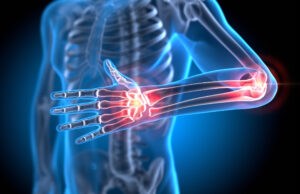
Studies show that conditions such as diabetes, obesity, and metabolic syndrome increase the risk of developing musculoskeletal conditions, and that cardiovascular disease risk is linked to the development of musculoskeletal conditions such as carpal tunnel syndrome (CTS), when a major nerve in the hand is squeezed or compressed as it travels to the wrist.
Musculoskeletal conditions are characterized by muscle, bone, joint, and connective tissue impairment that affects movement. Understanding more about the risk factors underlying musculoskeletal conditions could aid the development of treatment and prevention strategies.
In a study, researchers analyzed healthcare data from 1,224 workers in fields including manufacturing, healthcare, office jobs, and food processing. The study assessed for four common musculoskeletal conditions:
- CTS: pain in the wrist from repetitive grasping movements with the hands
- Rotator cuff tendinopathy: pain and weakness when moving the shoulder often caused by repetitive overhead activities such as throwing, raking, or washing cars
- Lateral epicondylopathy or ‘tennis elbow: pain, burning, or aching along the outside of the forearm and elbow that occurs when the forearm muscles become damaged from overuse
- Medial epicondylopathy or ‘golfer’s elbow’: pain in the inside of the elbow from overuse of forearm muscles
The study found that participants at a 15% higher than average risk of cardiovascular disease were four times more likely to develop a musculoskeletal disorder than those with lower risk.
Read the full article here.
